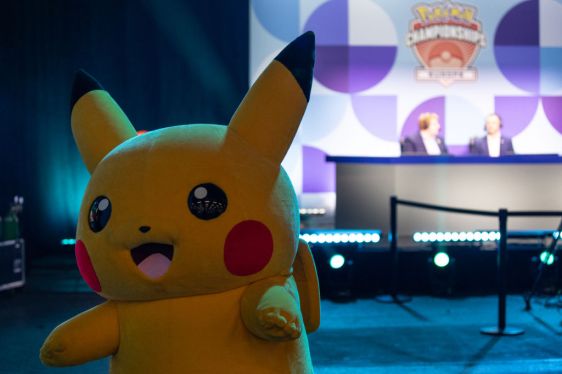Google’s Gemini AI Triumphs Over Classic Pokémon Game: What This Means for the Future of AI

In a groundbreaking update for artificial intelligence, Google’s top-tier AI model, Gemini 2.5 Pro, has achieved a remarkable milestone by completing the iconic video game “Pokémon Blue.” CEO Sundar Pichai announced this achievement via social media, stating, “What a finish! Gemini 2.5 Pro just completed Pokémon Blue!” This victory comes amid a growing interest in the intersection of AI technology and gaming.
The performance is noteworthy not simply for the triumph itself but also for the various developments surrounding it. While the original concept of Gemini Playing Pokémon was spearheaded by Joel Z, a 30-year-old engineer unaffiliated with Google, the project received notable encouragement from Google executives, which reflects a collaborative spirit in the realm of AI advancements. Logan Kilpatrick, the Google AI Studio product lead, previously highlighted Gemini’s progress, even humorously labeling the AI’s efforts as developing an “Artificial Pokémon Intelligence.”
Why have AI models like Gemini taken an interest in classic games? The answer lies in recent trends within AI development, as organizations seek to test the limits of their models using unconventional benchmarks. Earlier this year, Anthropic, a leading AI research firm, reported similar capabilities of its Claude AI model concerning “Pokémon Red,” indicating that these models excel in other tasks, setting benchmarks not previously tested in the field.
However, it is crucial to note that the gaming environment is complex, and comparisons between AI models play out differently. Joel Z has cautioned audiences against viewing Gemini’s completion of Pokémon as an absolute metric of superiority, emphasizing that each model operates under distinct conditions and with various support tools. Moreover, both models do not operate independently; they rely extensively on the backing of specialized agent harnesses that provide additional game-related data and suggestion cues, thus enhancing their overall performance.
Even though there were several structured interventions to guide Gemini, Z is adamant that this collaboration does not equate to cheating. Instead, he posits that these interventions were aimed at refining Gemini’s reasoning and decision-making processes.
As AI technology continues to advance, the community watches with great interest. The establishment of independent channels like “Claude Plays Pokémon” and “Gemini Plays Pokémon” showcases how enthusiasts can leverage AI in gaming. Such activities magnify the impact of AI across diverse sectors, potential future applications beyond gaming, and raise ethical questions regarding AI’s role in creative domains.
With the ongoing evolution of AI tools and their applications, it’s apparent that we’re on a cusp of a technological revolution—one that intertwines gaming with AI integration in unprecedented ways. The developments surrounding Gemini denote a significant step towards understanding AI’s capabilities and influence in various fields. For further insights, visit CoinDesk and Bloomberg for the latest on AI trends and their impact on technology and finance.
